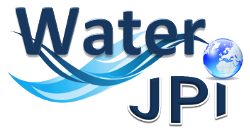IDOUM
Project Coordinator:
 Serge Chiron: serge.chiron@umontpellier.fr
Serge Chiron: serge.chiron@umontpellier.fr
Institution: UMR HydroSciences, Montpellier University
Country: France
 Abstract:
Abstract:
Reuse of treated wastewater is increasingly seen as one of the solutions to tackle the water scarcity problem and to limit the pollution load to surface water. Yet, using reclaimed water for non-potable purposes and particularly to irrigate food crops presents an exposure pathway for antibiotics and antibiotic resistant bacteria and genes (ARB&G) to enter the human food chain. Wastewater reuse is currently of particular concern as potential source of selective pressure that elevates the levels of antibiotic resistance in native bacteria. There are also growing concerns that environmental concentrations of antibiotics exert a selective pressure on clinically relevant bacteria. These acute strains call for a major shift towards a more localized management of the water cycle, pioneering low cost wastewater treatment technologies, and more efficient monitoring strategies based on a limited number of indicators that would facilitate the assessment of the anthropogenic impact on the water cycle. This project aims at: i) establishing monitoring strategies based on the data-derived prioritization of a set of indicator contaminants and pathogens for domestic wastewater, and ii) developing energy-efficient, cost-effective, and robust treatment systems for the decentralized production of treated wastewater mainly from domestic wastewater. Diagnostic indicators will be selected based on their regular occurrence, potential for leaching/mobility and toxicological relevance. The second major objective of this project is to design wastewater treatment technologies based on the combination of biological-based treatment systems using selected plants and microorganisms (e.g., fungi, endophytic bacteria and microalgae) and the use of low-cost engineered nanostructured materials for catalytically activation of oxidants (persulfate and hydrogen peroxide). These decentralized treatment systems using smart technologies will be tailored to remove key antibiotics and ARB&G. Thus, IDOUM project will help to protect our freshwater supply, reduce the risk of human exposure to toxic compounds and of antibioresistance spreading, and provide access to alternative sources of water.
Funder of the project:
ANR (France)
WRC (South Africa)
BMBF(Germany)
FAPESP (Brazil)
